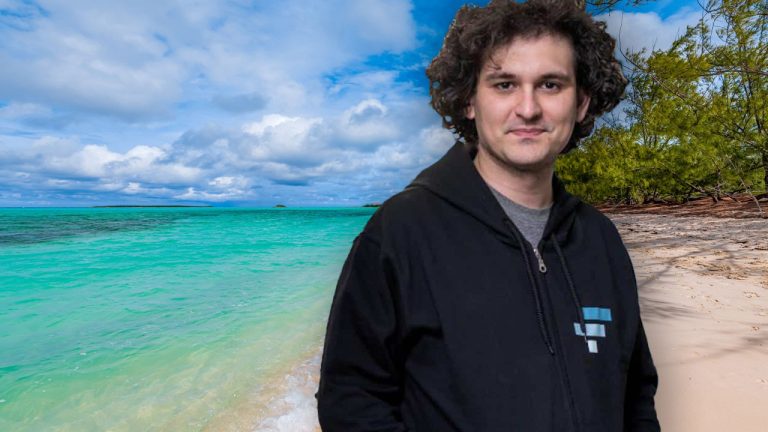
Sam Bankman-Fried took the stand in his fraud trial on Friday, October 27, 2023, and was questioned by his lawyer about the operations of FTX and its relationship with affiliated crypto trading firm Alameda Research.
Sam Bankman-Fried’s Trial Testimony Day 2
On Friday, Sam Bankman-Fried stated that FTX was “primarily a margin exchange” that allowed trading similar to a mortgage, with users borrowing funds to trade larger positions. He also discussed FTX’s risk management systems, its handling of Alameda’s accounts, and his responsibilities as CEO. The courtroom testimony was broadcast on X by the legal and investigative journalist Matthew Russell Lee from the Inner City Press.
Bankman-Fried testified that he started Alameda Research in 2017 to trade cryptocurrency arbitrage after previously working at Jane Street Capital. He said Alameda operated initially out of a rented Airbnb in Berkeley, California with a small staff including Gary Wang and Caroline Ellison. Bankman-Fried stated that he limited his own salary to $200,000 per year but that the firm was profitable, making “50 to 100 percent profit, annualized.”
After moving to Hong Kong, Bankman-Fried said they founded the FTX exchange and brought on more staff like Nishad Singh from Facebook. He stated that Alameda was a market maker for FTX, providing liquidity to the exchange. Bankman-Fried discussed risk management systems put in place, including a “risk waterfall” to cover negative account balances. “If an account went negative, we’d start selling off – but if late, we had backstop liquidity,” he stated.
Bankman-Fried admitted to concerns about erroneous liquidations impacting Alameda’s accounts. “I told Gary, we have to stop such liquidations of Alameda’s account. They told me they’d done it. Now I know it was the ‘Allow Negative,'” he testified. He also discussed increasing Alameda’s credit line to FTX to billions of dollars based on conversations with Wang and Singh.
The defendant stressed that he delegated leadership of Alameda to Ellison and Sam Trabucco as he focused more on FTX. However, he stayed involved in ventures and had access to Alameda’s systems. “Alameda’s Pointer pages…were on my auto-open,” Bankman-Fried stated. He also discussed measures he says were taken to avoid market manipulation and provide transparency to FTX users.
The ex-FTX CEO said he started FTX in the Bahamas due to friendlier regulations, lived with nine other employees, and delegated little as his public profile grew. Bankman-Fried admitted he had no marketing background but thought “brand marketing would be better” than digital ads. He decided to advertise at stadiums since their names were well-known. “I did not want FTX to be known as the Kansas City Royals of crypto exchanges,” he quipped.
The defendant also detailed his venture investments in cryptocurrency projects, political donations, and lobbying efforts. He said he wanted to “impact the world” through policies on issues like pandemic prevention. Bankman-Fried confirmed using encrypted messaging apps like Signal at FTX. When asked about retaining records, he responded that “some had to be kept, some should be not kept, and then those in the middle.”
The Unraveling of Alameda
In May 2022, Bankman-Fried observed a significant drop in Alameda’s net asset value, falling from $40 billion to $10 billion by June. He discussed hedging strategies with Ellison, aiming to mitigate potential losses. Bankman-Fried communicated these concerns and strategies to key personnel. Despite suggesting a $2 billion hedge to Alameda, he claims the firm did not implement this strategy.
Ellison allegedly approached Bankman-Fried, expressing her concerns that Alameda was on the brink of bankruptcy. Bankman-Fried insists he was taken aback, having not anticipated the severity of the situation. Ellison appeared nervous as she delivered this news, Bankman-Fried argued in court. This revelation prompted him to postpone a planned trip to Washington, D.C., where he was set to discuss crypto legislation with senators.
While dealing with Alameda’s financial instability, Bankman-Fried then claimed to have learned of an $8 billion bug in the system. He insists that he instructed his team, specifically Nishad and Adam Yedidia, to rectify the issue and strengthen the underlying system to prevent future occurrences. Despite not recalling specific discussions about Alameda’s liabilities, Bankman-Fried took measures to address the situation.
Alameda reportedly proceeded to repay approximately $1 billion in loans, and Bankman-Fried engaged in discussions with Blockfi about the situation. Additionally, Bankman-Fried had conversations with Yedidia about creating a “bulletproof” plan, though he could not recall the specifics of the location or content of this discussion.
In August 2022, Bankman-Fried had discussions with Singh about the Korean account and potential hedging strategies with Ellison. He contemplated shutting down Alameda, questioning if the right management was in place. Bankman-Fried also said he expressed concerns about the marketing team and hesitated to approve new marketing initiatives, though he acknowledged the success of some initiatives, like the MLB umpire patch.
As the testimony reached a natural breaking point, discussions turned to the schedule for the remainder of the trial. The jurors were dismissed until Monday, and the parties discussed the schedules for closing arguments, the charge conference, and the potential conclusion of the trial.
What do you think about Sam Bankman-Fried’s testimony on Friday? Share your thoughts and opinions about this subject in the comments section below.
source https://news.bitcoin.com/from-airbnb-to-bahamas-elite-bankman-fried-testifies-about-ftxs-operations-and-alameda/
Komentar
Posting Komentar